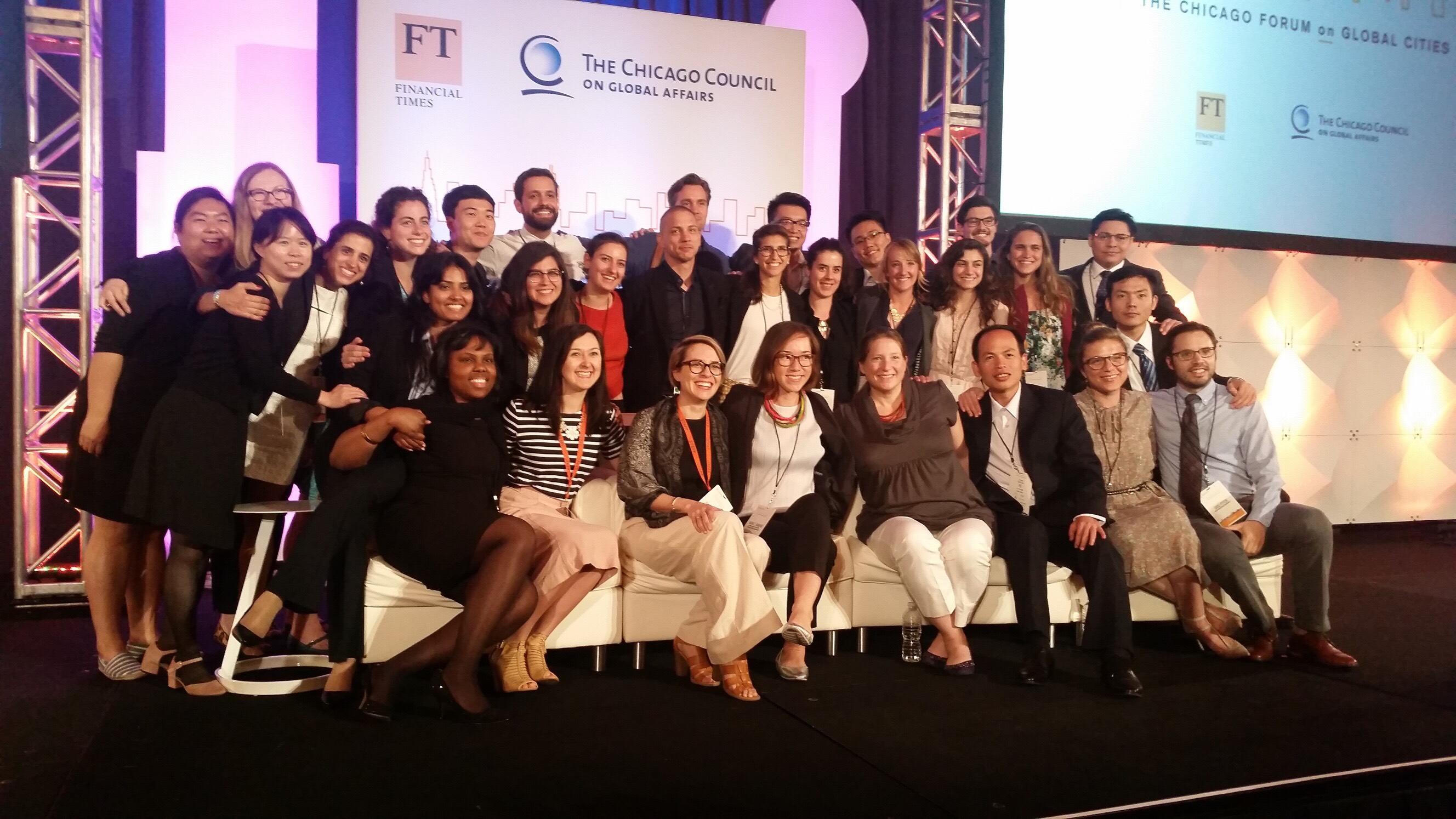Excited Matie student, George Frederick (Rickus) Cronje is back from meeting global leaders at the Chicago Forum for Global Cities held on 1 – 3 June 2016 in Chicago, USA.
The conference brought together global leaders from business, education, culture and civics. Topics were addressed in the form of panel discussions where a variety of global cities were represented. The panel discussions were superbly moderated by Financial Times journalists and ranged from topics such as transportation hubs to cultural heritage, safety threats, inclusivity, disruptive technologies, climate change and many more. All panel discussions can be freely accessed online at: https://www.chicagoforum.org/videos/2016
At the conference, 'I served as Stellenbosch University's representative and formed part of the Student Delegation. The Student Delegation consisted of 28 students from 21 different countries and I was the only African student', says Rickus.
An experience and food for thought that stood out for Rickus was his engagement with Claudio Orrego, Governor of the Metropolitan Region of Santiago, Chile. Claudio emphasised that 'if we want to decrease violence in cities we should invest in high quality infrastructure in the poorest communities of cities. We build social ghettos and then wonder why there is violence'.
Claudio's argument relates well with Rickus Master's research which is titled: A Business Case for Renewable Energy Technology Leapfrogging in Informal Settlements, supervised by Dr Josephine Kaviti Musango at School of Public Leadership and co-supervised by Imke de Kock at Industrial Engineering. His Masters study is part of urban Modelling and Metabolism Assessment (uMAMA – www.umama-africa.com), a research team within the centre Complex Systems in Transitions (CST), which aims to engage with various stakeholders ranging from city planners, decision-makers, scholars and civil society in co-creating sustainable cities and communities. Rickus has a heart for community development and would like to use his new-found perspective in being a catalyst for change in underserved communities.
Rickus' nomination and selection to participate at the 2nd Chicago Forum on Global Cities came through the Postgraduate & International Office and School of Public Leadership.


